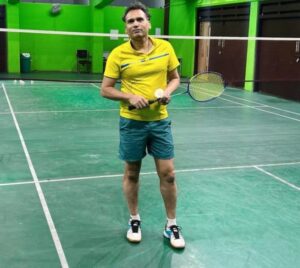As India gets into the Unlock 1.0, about three months spent in lockdown has changed our lives. We spent more time understanding our families and friends, whom we had forgotten in our otherwise busy lives to keep pace with the fast-moving world. The study also brought out how people spent more time on the internet and less on exercising.
The study was conducted by Mahendra Kumar presently working as Stroke Team coordinator at Department of Neurology, Stroke Services, PGI, Chandigarh and Sachin Dwivedi Nursing Tutor King George’s Medical University, Lucknow. The study has been published in the International Journal of Science and Healthcare Research.
Mahendra Kumar explains, “The course of the pandemic in India is different in terms of mortality and spread of infection as compared to some other countries of the world at the present time. The social, economic and psychological impact of the pandemic is noticeable. We thought it’s important to explore the ways people have found to cope with the pandemic situation on one side with social isolation on the other side that might have never-seen-before.”
He adds, “In a country were more than 1.3 billion people who were inside their homes since 25th March a study to assess effect on lockdown on given population routine habits gave an insight of how people are living under impact of lockdown and the findings revealed the impact of these never seen restrictions on life of people.”
In the study which was conducted in all major cities, including Chandigarh, 50 percent responders were young and professional between the age group of 18 to 25 years of age and more over female gender was dominating by more than half of total responders as 68 percent of participants were female where 54 percent were married
Research data has found that over 40 percent people used maximum internet data for official work since lockdown as people are working from home and 52 percent people had to install new applications on their phones, computers, tablets to facilitate work from home since lockdown was imposed.
During the lockdown period people were getting up late and enjoying a delayed morning as only 6 percent participants got up at 5 am since lockdown as compared to 19 percent before lockdown and 42 percent participants got up at or after 8 am post lockdown as compared to 12 percent before lockdown as they spent more time on bed after lockdown.
People were seen spending more and more time talking to their relatives or friends since lockdown as 42 percent people reported frequent use of mobile phones since lockdown as compared to 33 percent of them before lockdown.
Watching TV found one of the most common entertainment sources as 43 percent people agreed that they spent more time in front of TV since lockdown as compared to 21 percent before lockdown with an average watching time 3.30 hours a day that was 2.48 hours pre-lockdown (23 percent).
Lockdown had a profound impact beyond the virus as significant change in exercise habits was found in study result as 42 percent of people were doing exercise at least more than 3 times in a week before lockdown where since lockdown that drastically down as 22 percent this suggested that prolonged home stays can change the behaviors that lead to inactivity.
Eating habits changed drastically during lockdown and we found 75 percent people agreed that they are cooking more and spending more time in the kitchen compared to pre-lockdown even it impacts on household food wastage and about 89 percent of respondents claimed to be aware of food wastage.
Majority of the respondents to the survey (65 percent) agreed that they have had good access to basic necessities like food and health care during the lockdown as the government has been providing supplies of necessities door to door.
The data shows that half of the people (52 percent) agreed to feel socially isolated due to lockdown as they are bounded to stay inside their home and not allowed to go outside or meet people and this suggest that people in lockdown are experiencing negative psychosocial changes which have an impact over thinking and anxiety.







Comments are closed.